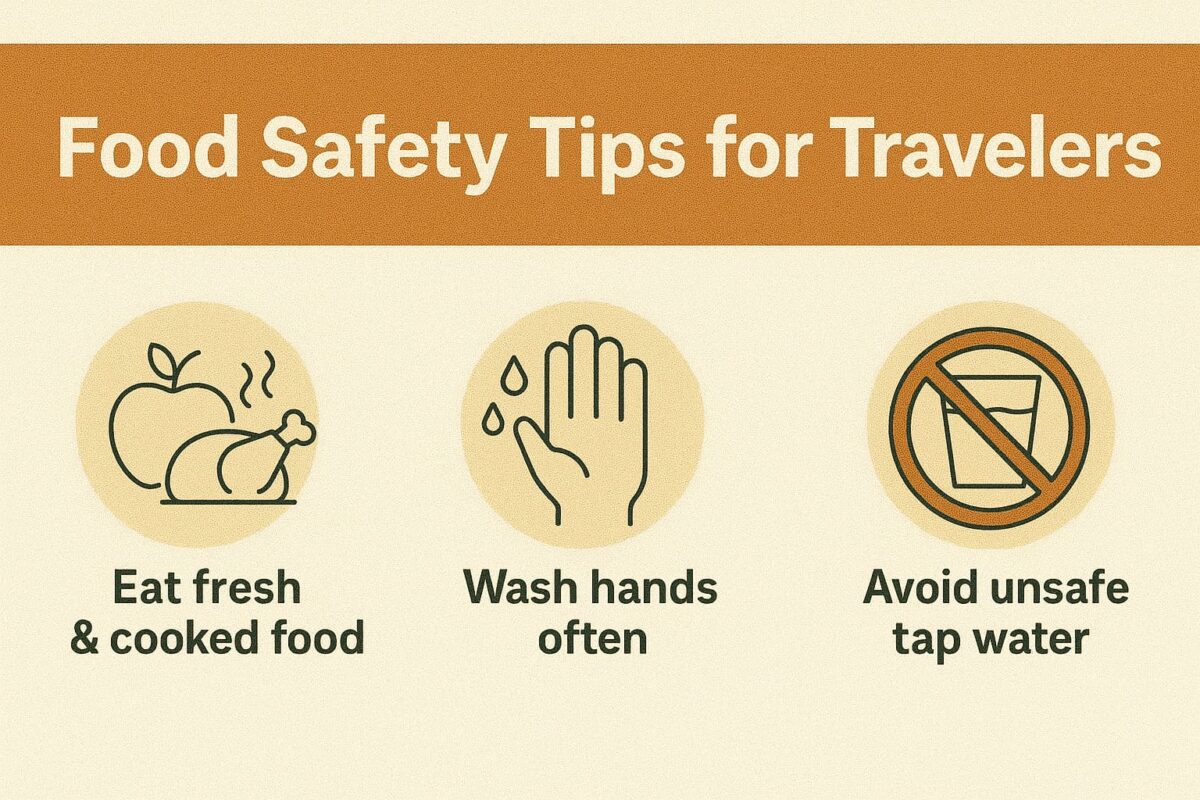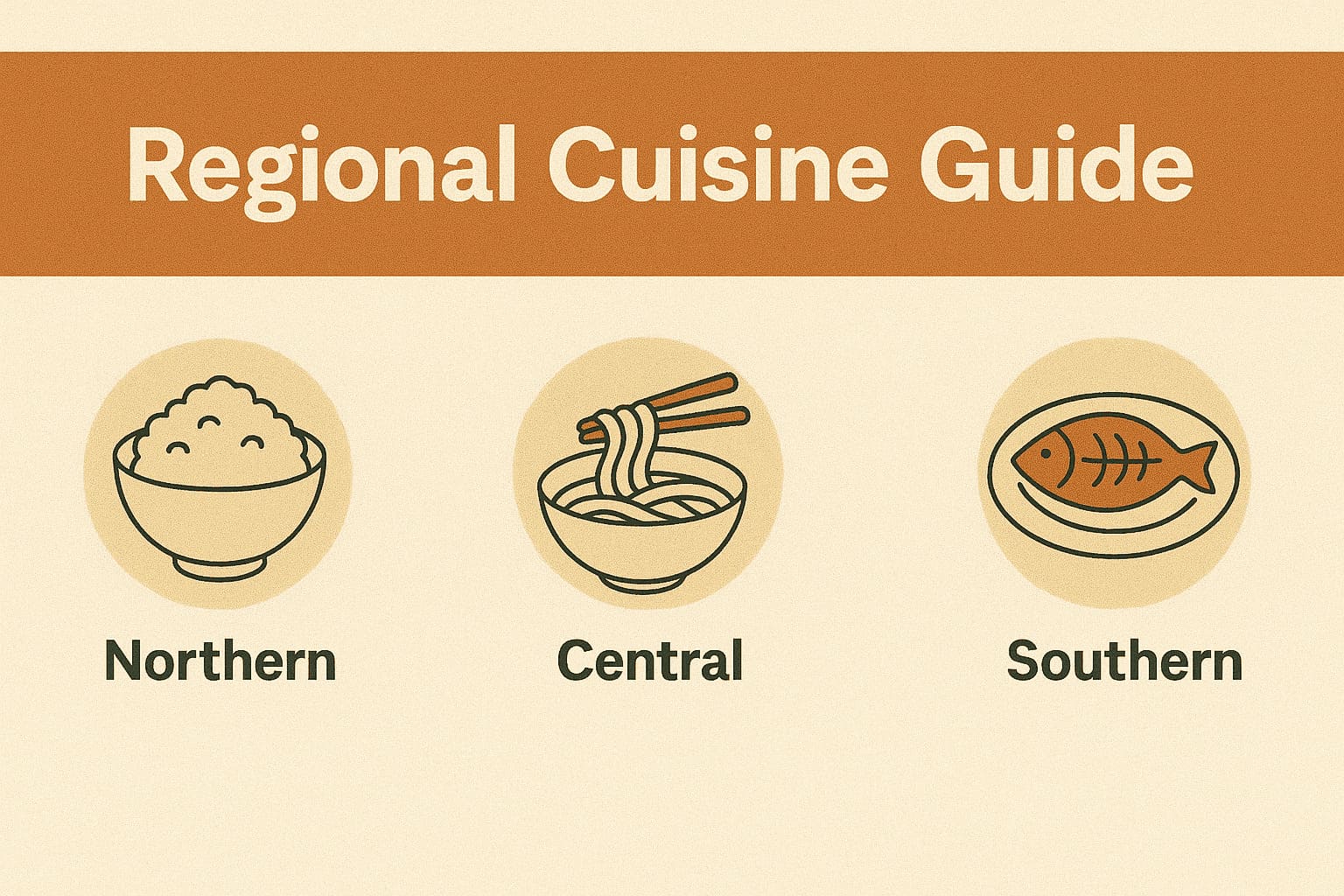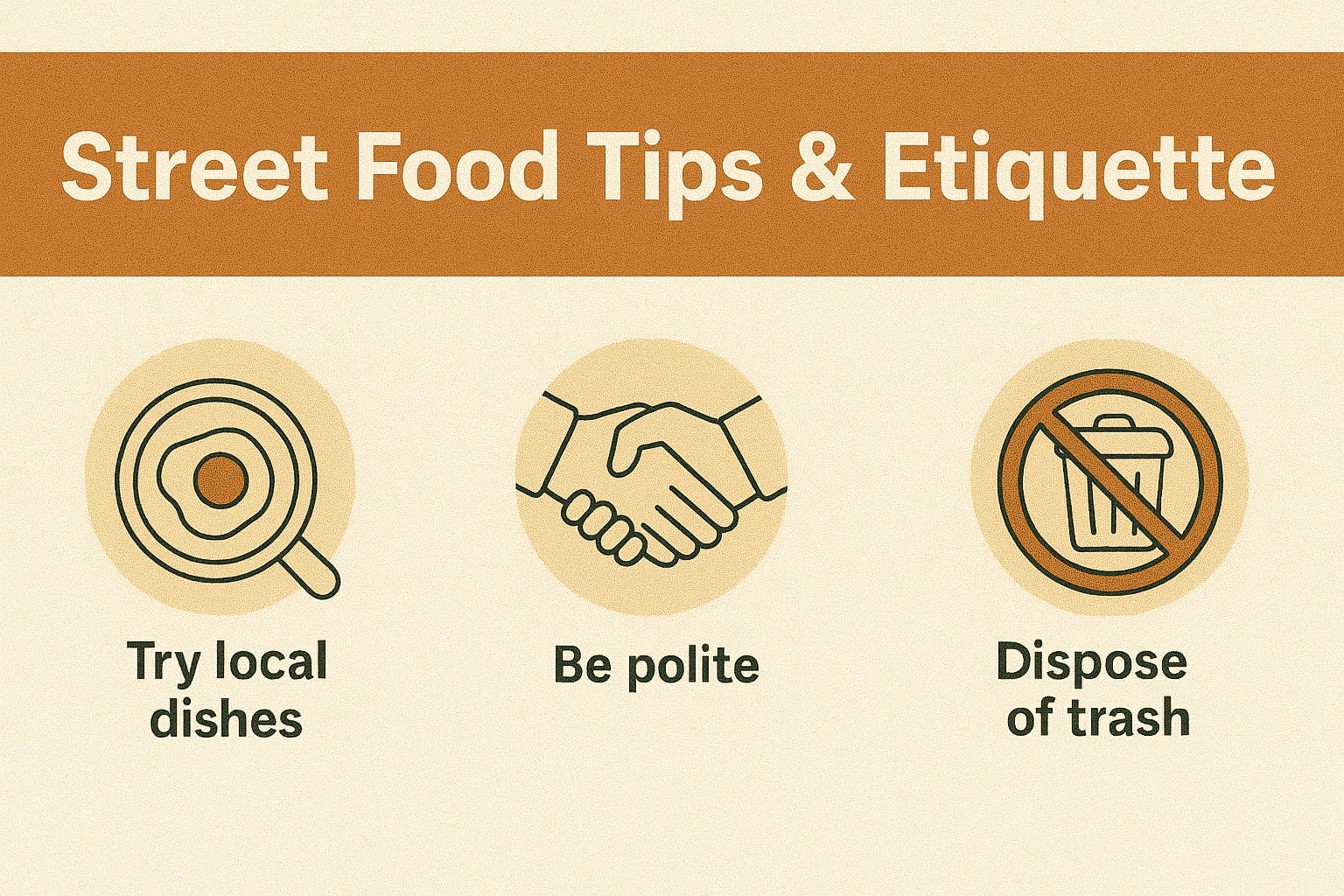Vietnamese cuisine is renowned for its diversity, freshness, and affordability, making it one of the country’s biggest attractions for international visitors. However, for those unfamiliar with local food practices, food safety can be a concern—particularly when eating at street stalls or unfamiliar establishments.
Understanding and following a few essential safety guidelines will allow travelers to enjoy Vietnam’s rich culinary culture while avoiding common food-related health issues.
2. Food Safety Tips for Travelers in Vietnam
a. Choose Reputable Restaurants
- Look for busy places frequented by locals. High customer turnover usually means fresher ingredients and better hygiene practices.
- Avoid eateries with signs of poor sanitation, such as unclean utensils, uncovered food, or unsanitary preparation areas.
- Check reviews on platforms like Google Maps or TripAdvisor, or ask your hotel staff for recommendations.
b. Prioritize Fully Cooked Dishes
- Avoid raw or undercooked foods, including raw seafood, rare meats, and unwashed fresh vegetables.
- Choose meals like hot noodle soups (phở), rice dishes, or freshly stir-fried meals that are served hot.
- For grilled meats or fish, make sure they are cooked thoroughly before eating.
c. Be Careful With Water and Ice
- Drink only bottled water with an intact seal. Avoid drinking tap water.
- Avoid ice if you’re unsure of its origin, especially at street food stalls. When in doubt, request drinks without ice.
- Be cautious with pre-bottled juices or drinks sold in unsealed containers.
d. Maintain Personal Hygiene
- Always wash your hands with soap or use alcohol-based hand sanitizer before meals.
- Bring wet wipes or travel tissues when eating outdoors or on the go.
e. Pack Essential Medication
- Carry basic medications such as digestive aids, anti-diarrheal pills, probiotics, and pain relievers.
- Oral rehydration salts (ORS) are also recommended in case of dehydration from digestive issues.
- These items can be found at large pharmacy chains in Vietnam such as Pharmacity or Long Châu.
f. Avoid Wild Animal Products
- Do not consume dishes made from wild animals like snakes, porcupines, rats, or bats.
- According to the World Health Organization (WHO) and Centers for Disease Control and Prevention (CDC), wild meat may carry zoonotic diseases that pose serious health risks.
3. What to Do If You Experience Food-Related Illness
- Common symptoms such as nausea, stomach cramps, diarrhea, or mild fever can often be managed with rest and hydration.
- Take over-the-counter medications or probiotics for mild symptoms.
- If symptoms persist for more than 48 hours, visit the nearest clinic or international hospital for proper medical attention.
✅ Conclusion
Food safety is a vital part of ensuring a smooth and enjoyable travel experience in Vietnam. By choosing reliable dining spots, practicing good hygiene, and preparing for minor health issues, international travelers can confidently enjoy Vietnam’s vibrant and flavorful cuisine without unnecessary worry.





